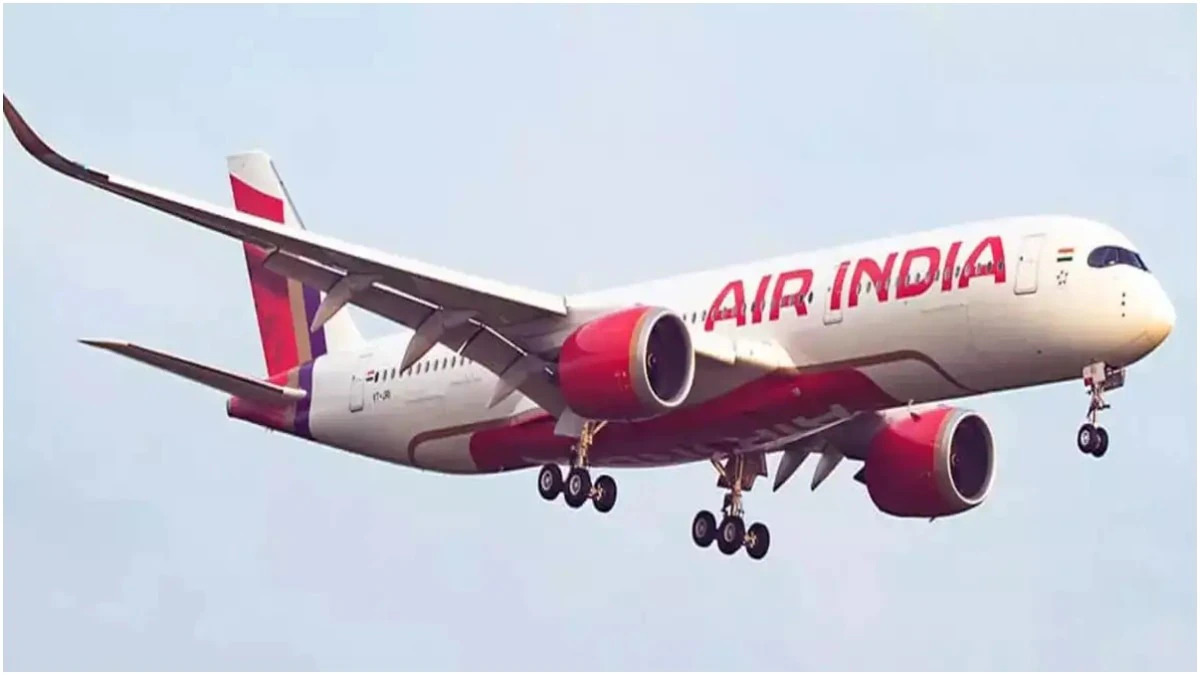Air travel, a cornerstone of global connectivity, is inherently susceptible to unforeseen disruptions, often exacerbated by weather phenomena and operational exigencies. Recently, Air India, one of India’s prominent carriers, encountered a series of incidents that underscore the complex interplay of atmospheric conditions, crew well-being, and corporate responsibility in maintaining seamless aviation services. These events, ranging from flight diversions due to inclement weather to medical emergencies affecting flight crew and controversies surrounding accident compensation, collectively paint a picture of the multifaceted challenges confronting airlines in today’s dynamic operational environment.
On late Sunday night, Air India flight AI 926, en route from Riyadh to Delhi, was compelled to divert to Jaipur International Airport. This rerouting was necessitated by adverse weather conditions plaguing the national capital, rendering Delhi’s Indira Gandhi International Airport unsuitable for landing at its originally scheduled arrival time of approximately 1 am on July 7. Following the diversion, passengers were presented with options for onward travel to Delhi. Notably, many chose road transportation over alternative flight arrangements, highlighting a preference for terrestrial transit when faced with airborne uncertainty. This decision points to broader passenger expectations for swift resolution during travel disruptions, underscoring the need for robust ground logistical support from airlines.
Adding to the operational complexities, an Air India flight from Bengaluru to Delhi, AI2414, experienced a significant delay on July 4 due to a medical emergency involving one of its pilots. The pilot, rostered for the flight, fell ill just prior to takeoff and was immediately hospitalised. While the airline promptly arranged for a replacement cockpit crew member to operate the flight, leading to a delay of nearly 90 minutes from its scheduled departure, the incident brings to the fore critical discussions around pilot welfare and the stringent safety protocols in aviation. Ensuring the well-being of flight crew is paramount, directly influencing flight safety and operational reliability, and aligns with the broader societal mandate for safe and equitable workplaces.
These incidents, while distinct in their immediate causes, contribute to a larger discourse on an airline’s commitment to operational resilience and ethical conduct. Aviation, by its very nature, demands meticulous planning and robust contingency measures to safeguard passenger journeys and employee welfare. In the context of a zero-net carbon and eco-friendly future, airlines are increasingly scrutinised not just for their carbon emissions but also for their overall operational sustainability, including efficient resource utilisation and ethical engagement with stakeholders. The ability to swiftly manage unforeseen events while upholding passenger comfort and crew safety becomes a crucial performance indicator for any modern carrier.
Further amplifying the scrutiny on the airline, Air India recently issued a detailed statement refuting allegations that it coerced families of victims of a previous accident, AI-171, into signing documents related to financial dependency for compensation. The airline categorically denied these claims, asserting that requests for such information were part of a standard procedural requirement to ensure interim compensation reached legitimate beneficiaries without undue delay. This controversy underscores the delicate balance airlines must strike between administrative efficiency and empathetic engagement, especially in emotionally charged situations involving loss and compensation. Transparency and sensitivity in such processes are fundamental to upholding public trust and aligning with the principles of equitable treatment.
The comprehensive management of diverse challenges—from adapting to volatile weather patterns through effective flight diversions and ground logistics, to addressing critical pilot health emergencies with rapid crew replacement, and navigating sensitive compensation claims with clarity—is central to an airline’s reputation and operational integrity. These occurrences highlight the intricate web of responsibilities borne by air carriers, extending beyond mere transport to encompass passenger welfare, employee well-being, and adherence to ethical business practices. They also serve as a reminder for the aviation industry to continuously invest in robust operational frameworks, crew support systems, and transparent communication strategies.
Ultimately, the confluence of these events stresses the imperative for airlines to operate with an unwavering commitment to safety, efficiency, and social responsibility. For a nation like India, where air travel is continuously expanding, the resilience and responsiveness of its carriers play a pivotal role in maintaining public confidence and supporting economic growth. Air India’s handling of these recent challenges offers valuable insights into the ongoing efforts required to build a sustainable and passenger-centric aviation ecosystem that can adeptly navigate the complexities of modern air transport.
Also Read :Mumbai Airport Harvests 26 Lakh Litres Rainwater Each Monsoon Season
Delhi-Bound Air India Flight From Riyadh Diverted To Jaipur Amid Bad Weather


